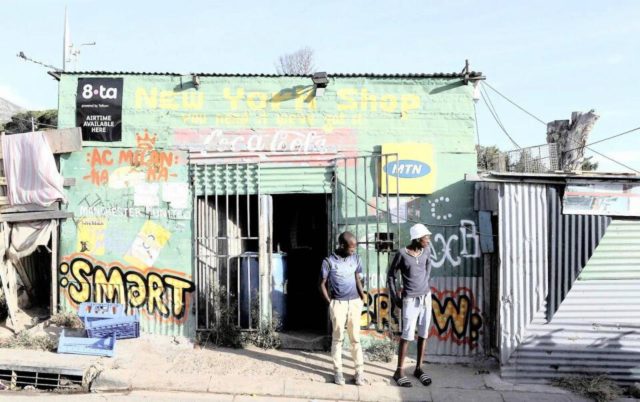“We call on our people to limit the trips to shopping centres for the purpose of shopping for food and basic goods only, and not to gather in shopping malls.”
GROCERY stores, supermarkets, and spaza shops will remain open during the nationwide lockdown.
This was announced yesterday by the Minister of Trade, Industry and Competition, Ebrahim Patel.
Discussing the impact the Covid-19 National Disaster is expected to place on the economy, including small business owners and ordinary citizens, Patel pointed out that companies that are essential to the production and transportation of food, basic goods and medical supplies would remain open during the 21-day lockdown.
“This means that essential personnel required for the continued functioning of these companies during the lockdown will be exempted from the stay-home provisions.”
While further guidelines are expected to be announced today, Patel confirmed that grocery stores, supermarkets, and spaza shops would remain open.
“We call on our people to limit the trips to shopping centres for the purpose of shopping for food and basic goods only, and not to gather in shopping malls.”
Pharmacies will remain open as well as health care professionals providing essential services to the public.
“All essential items – food and beverages, medical suppliers, personal products, hygiene products, cleaning products – will remain available through the lockdown and the period of the national disaster. This means that all businesses essential for the production and distribution of these essential items will be allowed to remain in operation during the lockdown.”
“Consumer-facing businesses, like grocery stores, supermarkets, pharmacies and spaza shops, especially, will be asked to educate their staff and customers on the required protocols and to take reasonable steps to keep social distancing between customers.
Other categories of essential services that are being looked at for inclusion in the Gazetted list include those responsible for essential care of the elderly and sick persons, including home-care and old-age homes; essential private security services for the protection of property and persons; all essential back-office services to enable salary and human resource departments to work so as to ensure smooth management of wage and salary payments; essential animal welfare and emergency veterinary services; those who assist in transporting food and other essentials to people’s homes including on-line retail, as well as transport systems that support any of the essential services; and key maintenance systems required at workplaces to avoid serious damage to economic assets, where the interruption of that service will destroy critical working areas, factories or machinery.
“Members of Parliament, provincial legislatures, municipal councils and their core staff, as well as government departments and public entities’ staff responsible to assist with implementation of the measures announced by the president, as they will all need to be working to make the country safe.”
Also included are members of the media, as well as the transportation of fuel, food and basic goods.
“During the lockdown, we strongly encourage all companies whose employees are able to work from home to make the necessary arrangements for them to do so, as we need to maintain as much of the economic activity as we can during this critical period, so that we generate resources to finance the measures that we are undertaking.”
Patel added that the National Consumer and Competition Commission would also be monitoring closely the pricing of products to ensure that there are no unjustified price increases.
“Last week we published a list of 22 critical products and categories. These include basic food items (like rice, maize meal, milk, canned vegetables and meats), personal care products (like toilet paper, baby formula and nappies), hygiene products (like disinfectant, hand sanitiser, and cleaning agents) and key medical supplies (like surgical masks and gloves).
“The Consumer and Competition Commissions are investigating 11 firms who have been found to be selling products like face masks, hand sanitisers and other products, for high prices and abusing the situation. More firms are being investigated and prosecutions will follow.
“These 11 firms which the regulators are investigating have been brought to the attention of the authorities by ordinary consumers. The National Consumer Commission has established a toll-free hotline (0800 014 880) and are also reachable on social media through Twitter (@NCC_COVID19), where consumers can report unjustified price increases on any of these 22 products and other key products.”
Banks have also been issued with exemptions under the Competition Act to co-ordinate on measures which can be used to support businesses and ordinary citizens during this period.
“The exemptions will allow South African banks to work together to devise programmes and relief measures which can help small businesses and consumers through these financial and economic challenges. In particular, the exemptions will enable banks to co-ordinate in respect of: payment holidays and debt relief for business and individual citizens subject to financial stress; limitations set on asset repossessions of business and individual citizens subject to financial stress; and the extension of credit lines to individuals and businesses subject to financial stress.
“Tenants in shopping malls will also be allowed to meet and reach agreements with shopping mall owners and to address matters such as payment holidays or rental discounts and limitations on evictions. These include retailers that provide personal care functions, restaurants and clothing, footwear and home-textile shops.”








